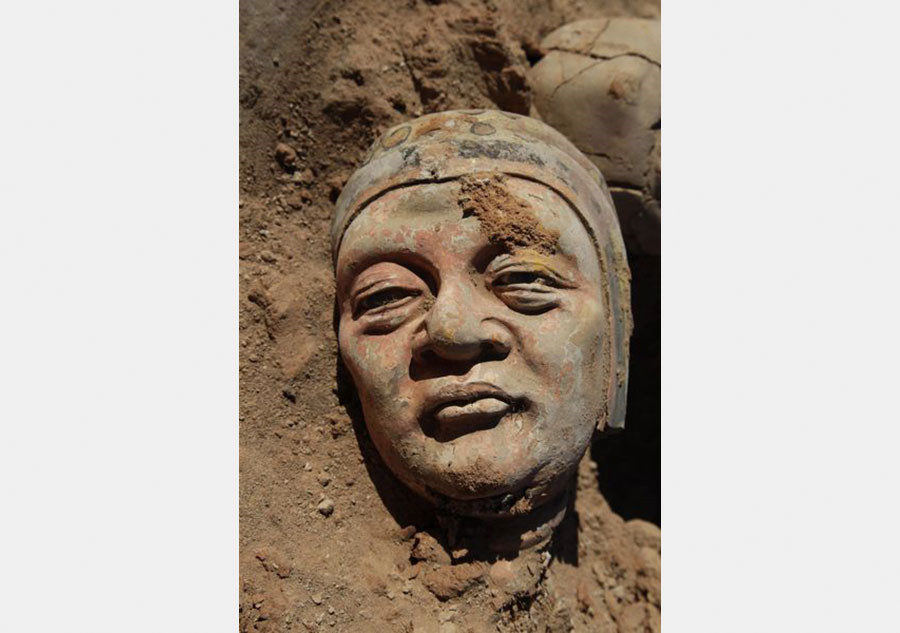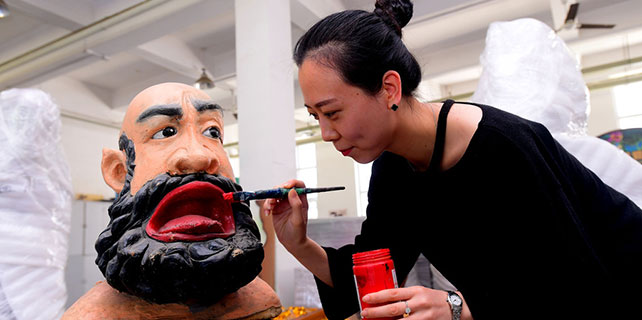China's major archaeological finds in last five years (part 2)
 |
|
Clay sculpture of Buddha discovered in Inner Mongolia autonomous region [File Photo/Xinhua] |
Xishanpo Buddhist temple ruins in Inner Mongolia
Located to the south of Lindong town of Baarin Left Banner in North China's Inner Mongolia autonomous region, Liao Dynasty's upper-capital city Shangjing was first built in 918AD.
The city was consists of two parts, an imperial city area and a Han city area. Xishanpo Buddhist temple ruins were located within the Imperial City of the ancient Liao Dynasty (916-1125) capital.
To date, many precious relics have been excavated, including exquisite Buddhist clay sculptures, stone sculptures, copper coins, ceramic fragments and iron tools.
The important location and large scale of the temple ruins shows that it was one of the landmark architectures in Shangjing city.
The excavation of the ruins yielded abundant findings which could help to confirm the Xishanpo site to be a royal Buddhist monastery built during the Liao Dynasty.
Due to its important location and large size, the temple could be rated as one of landmarks in ancient capital city.
The discovery also provided invaluable materials to study the history, Buddhism and architecture of the Liao Dynasty.
Xishanpo Buddhist temple site in Inner Mongolia was listed as one of China's top 10 archaeological discoveries in 2012.









